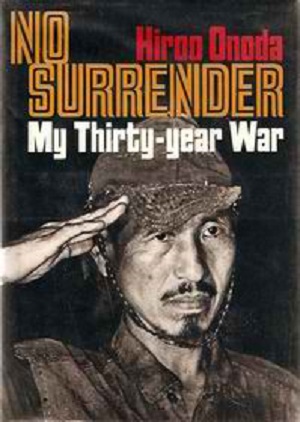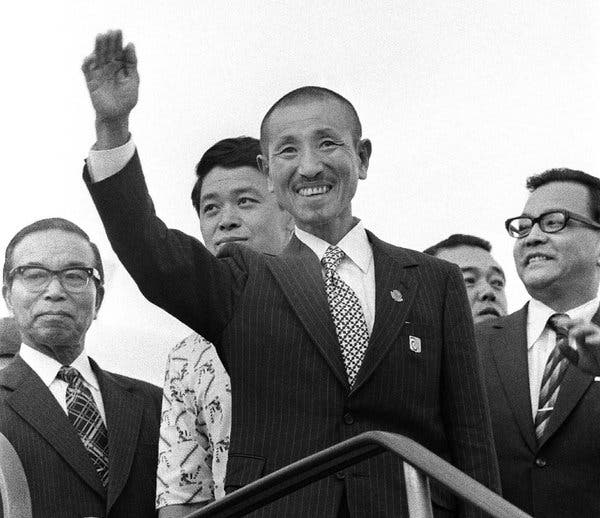Everyday, we read so many tales of amazing people around us. Some well-known and some not. Some who fade into history’s archives after being a bright spark and some who continue to stay and refresh our memory. My effort is to bring out the best of management and life’s lessons that could be gleaned from these individuals.

This is the story of Hiroo Onoda, a soldier from the Japanese Imperial Army. His story dates to the Second World War and beyond.
Hiroo Onoda was trained as an Imperial Army Intelligence Officer. His mission was to go behind enemy lines and gather intelligence that would be useful for the Japanese army, while leading small teams of men to create havoc and unrest. If you are able to win skirmishes and ensure fatalities for the enemy (the allies, in this case), all the more better. Waging guerilla warfare and collecting intelligence were his training focus areas.
So, what’s special about him?
Hiroo Onoda continued his war for a period of 30 years (December 26th 1944 to March 10th, 1975) on Lubang Island (Philippines)! This is long after Japan had surrendered. He did not know about the Hiroshima and Nagasaki bombings and neither did he believe Japan’s surrender (extremely Jingoistic).
What actually happened?
Hiroo Onoda was following orders from his superior to the T:
- No matter how long it Takes, the Japanese army will come for him
- Even if there is just one man, continue leading him
- No suicide
- Collect intelligence and don’t be caught by the allied troops
Onoda and his companions employed guerilla tactics and continued harassing the enemy soldiers. One by one, his men fell but that did not deter Onoda in continuing his fight. He and his band of men refused to believe Allied propaganda on Japan’s surrender as for them there was no way that Japan could lose the war. Hence, all efforts from the Philippines government to draw them out failed as they construed the steps taken as traps. Efforts from the free locals, who were tired of being harassed also failed at convincing Onoda to surrender. What kept them going was the thought:
” Japanese army hasn’t come for us, so that means we haven’t still won. We can’t lose, so the war must still be on”
Though his men fell to the Filipino police and patrols, Onoda continued his individual efforts. He was so good at his work, that Japanese search patrols could not locate him. It was in 1974 that a student Nario Suzuki succeeded in locating Onoda and tried persuading him to come home. As expected Onoda refused and it took his commanding officer, who was now working at a book store, to meet and talk him into surrendering. Onoda finally surrendered on the 10th of March, 1975 to the Philippine president, Ferdinand Marcos. He was pardoned for his crimes (he had killed around 30 Filipinos and injured scores as part of his guerilla warfare) against the Filipinos as Onoda has committed them in the mindset of an ‘At war’ soldier.
What’s the learning?
- Dedication to country and to duty: One would actually call Onodo crazy, but looking at his perspective, he performed what was right for Japan. He did not fail to carry out his orders. His intelligence notes and logs were maintained and preserved.
- Resourcefulness: Even on the day he surrendered, he had a working rifle – all oiled and in an excellent condition with 500 rounds to spare! His uniform was well maintained and had very neat patches sewn on. He survived in the jungles on what the forest could offer and by looting the farms and livestock in the villages adjoining the jungle.
- Planning & Decision making: His decision making (despite being contradictory to the facts and based on minimal information) is still commendable. Where to attack, how to conceal oneself, how to make the best of his men and meagre resources and all along ensuring that Japan was benefiting from their service.
The strength of character demonstrated was exemplary – how many can continue such a hard life for so long, driven just by his duty to his country? It only takes the twist of fate to accord the right treatment – if Japan had won, Onoda would have been a certain hero for his valiant efforts and not looked at as a soldier who killed innocent civilians. He deserves respect for not opting to give-up and for pursuing his duty relentlessly.

